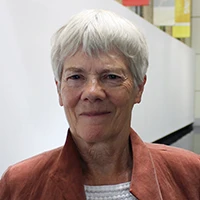
Connect
About
Anne Phillips is Emeritus Professor in the Department of Government, having previosuly held the position of Graham Wallas Professor of Political Science. She joined LSE in 1999 as Professor of Gender Theory, and was Director of the Gender Institute until September 2004. She subsequently moved to a joint appointment between the Gender Institute and Government Department, and later to a sole appointment in Government.
She was elected a Fellow of the British Academy in 2003 and Fellow of the Academy of Social Sciences in 2013, She holds honorary degrees from the Universities of Aalborg and Bristol, and in 2016 received the Sir Isaiah Berlin Award for Lifetime Contribution to Political Studies. Her most influential work is The Politics of Presence: the Political Representation of Gender, Race, and Culture (1995). As well as engaging with issues of democracy and representation, she has addressed the relationship between equality and difference; the uneasy relationship between feminism and liberalism, feminism and multiculturalism; and the dangers in regarding the body as property. Her most recent book is Unconditional Equals, published by Princeton University Press, 2021.